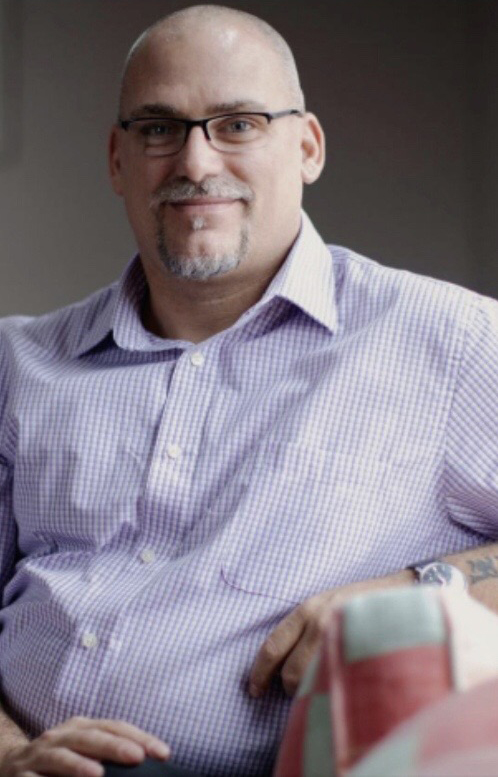
Molly Hauxwell-Currier
Roy Angel. Image: Molly Hauxwell-Currier
Editor’s note: This is part of Coping with COVID-19, a series of brief looks at people in a pandemic.
By Lucas Day
Roy Angel, 46, is a counselor at Harbor Hall, a Petoskey addiction recovery home. He is also in in recovery from his own heroin addiction.
“The challenge that isolation has presented is that so many people when they get out of treatment, they need connection. Some programs, whatever it is, whether it’s a 12-step program or Smart Recovery or whatever mode it is, they need to be connected.
“If we get people coming out of treatment and then not having some place to connect when they get out of there, it’s very dangerous. Isolation is something that addiction wants, and without being connected, and without having support from like-minded people, the chances of people returning back to addiction are very high.
Angel now meets clients in a virtual setting, which he says isn’t as effective.
“Since businesses (have) been closed down, all the meetings have went to Zoom meetings. It’s definitely a little bit different because connecting with somebody on a computer is different than the social interaction [in-person]. It doesn’t quite produce the same level (of) oxytocin in the mind as social connection does on a personal level.
“Due to the governor’s mandates, it’s been difficult for a lot of people because they’re not able to do the things that they once could. The parks and stuff closed down to some extent. Basketball hoops are taken off the poles. So, it’s been very difficult for people, especially those in early recovery because there’s really nothing to do.”
